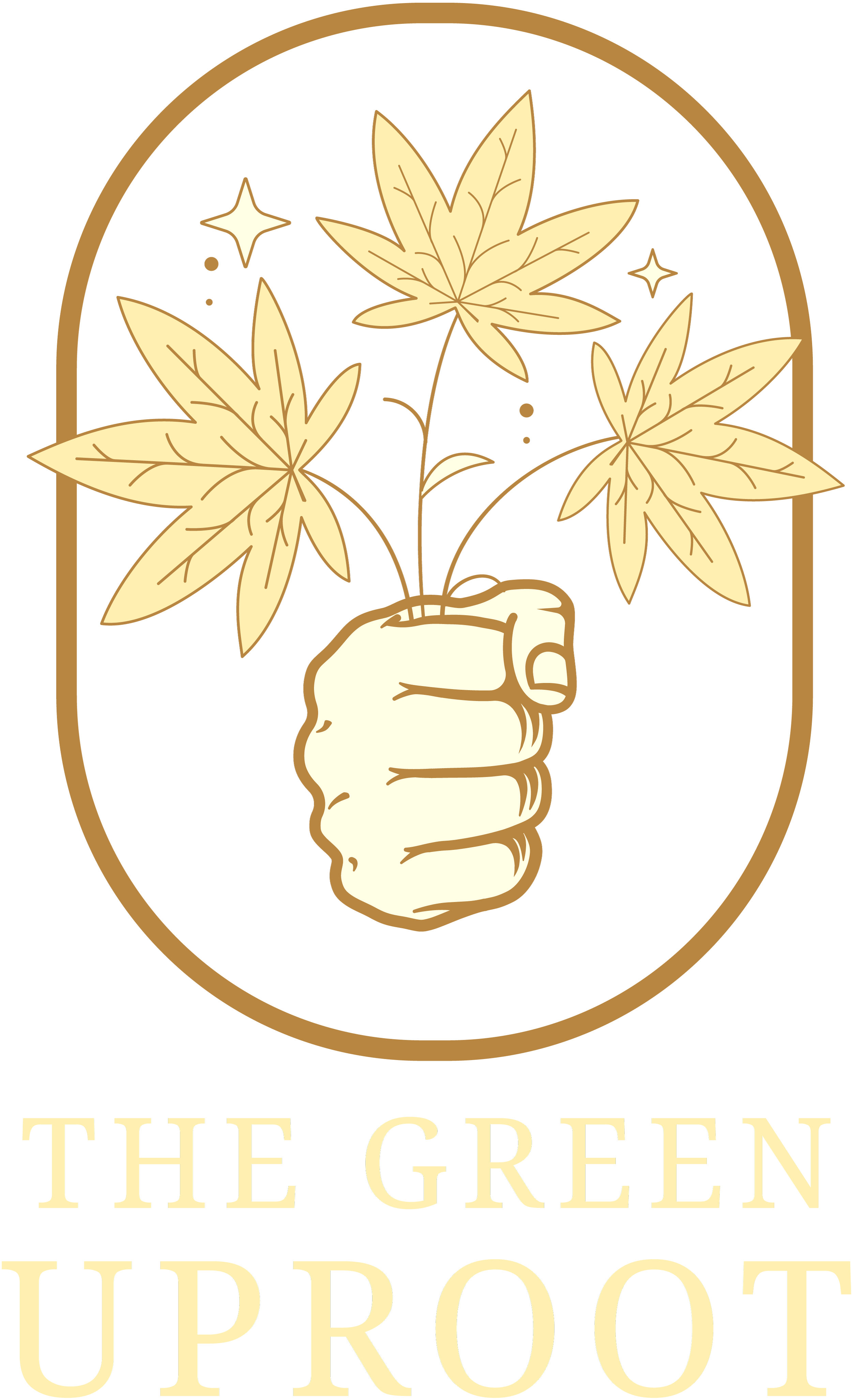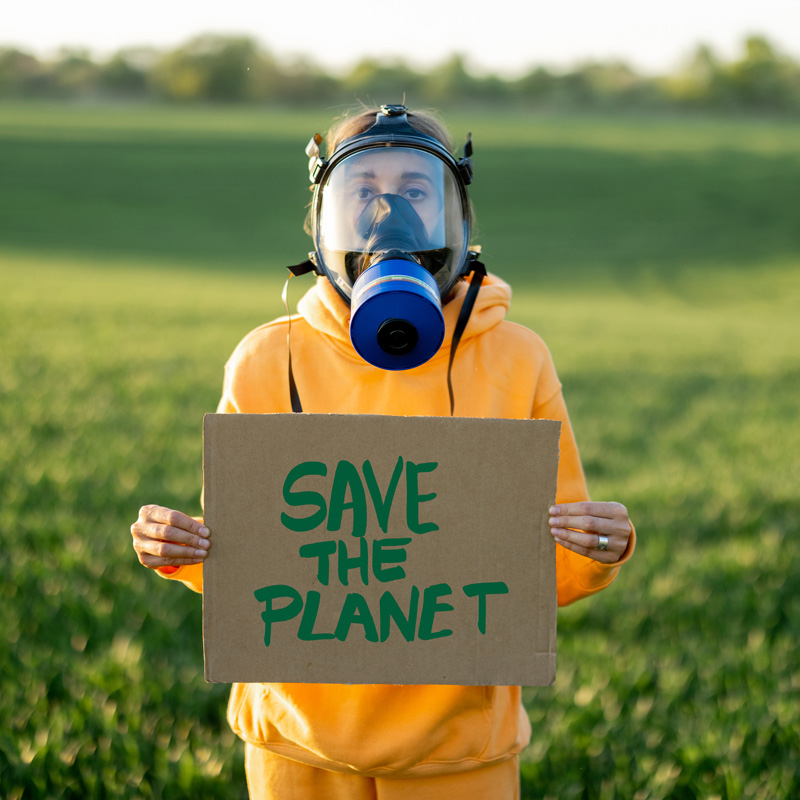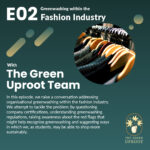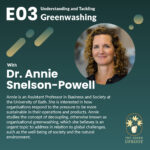Labelling your vegan friend as “weird” or “extreme” is a thing of the past. It has been reported that 2-3% of Britain’s population is vegan, and the number continues to grow, quadrupling between the years 2014 and 2019 in Great Britain alone (1). Whether it is to help the animals, save the planet, slim down or be healthier, it is now widely recognised that going vegan is one of the most sustainable things you can do, offering a wide range of benefits to not only your body but also the world you live in, with a 2016 study suggesting that adopting a vegan diet would reduce food-related greenhouse gas emissions by a whopping 70% (2, 3).
Meat and dairy production:
In the last 50 years, the production of meat has risen significantly, tripling, in fact, thus leading to an increase in global greenhouse gas (GHG) emissions, water use, and deforestation (4). In 2016, animal agriculture was responsible for 18.4% of global GHG emissions, with 5.8% of that total coming from the livestock and manure sector (5). It is therefore likely that if the demand for animal products decreases, such as individuals ordering a plant-based meal at a restaurant, opting for oat or soy milk instead of cow’s milk, or buying vegan meat and cheese alternatives at the supermarket, the environmental impact caused by animal agriculture food-production will also decrease. Studies have demonstrated that per 2,000 kcal consumed, a vegan diet produces the lowest amount of CO2eq (6). Although processed meat-alternatives may have a larger environmental impact than whole foods, such as fruits, vegetables, or nuts, they do still only produce “a fifth to less than one-tenth of the environmental impact of meat-based equivalents” (7).
Greenwashing in Leather production:
It is not unusual for leather makers to greenwash, falsely labelling their products as “eco-friendly”. While leather is a by-product of the meat industry, most conventional leather brands (92% of all leathers) are a far cry away from being sustainable (11). Not only does this by-product originate from an industry that requires an excess of land, water, fossil fuels, and resources to raise the animal, but transforming their skin into non-biodegradable leather shoes or a leather bag typically requires hazardous chemicals, such as arsenic, formaldehyde, and cyanide, all of which create waste products that pollute the environment (8). Runoff of toxic chemicals used in leather tanneries has also been linked to tannery workers and residents developing different types of cancer, e.g., lung and skin cancer, amongst others (9, 10).
Despite this, 8% of leathers are tanned using chrome-free/vegetable ingredients, which are environmentally friendly, more durable, and more expensive, as they cannot be mass-produced, unlike chemically tanned leathers (11). Purchasing vegetable-tanned leather is a more sustainable option than chemically tanned leather, however, by investing in any leather product, you are consequently investing in an industry that damages the environment through rearing the animal to be eaten in the first place.
In recent years, there has been a growing number of sustainable leather alternatives, known as “vegan leather” which can be made using recycled plastic, pineapple leaves, cork, apple peels, and even mycelium! Thamon, Stella McCartney, and Mylo are a few examples of brands that offer attractive leather alternatives (12, 13, 14), and if you wish to find out more, we have included a helpful list of vegan-friendly fashion brands below (15).
Being aware of veganwashing:
Veganwashing is a relatively new concept and can be defined as non-vegan businesses introducing vegan or plant-based options to increase their sales and distract consumers from their other unsustainable activities.
An example of this is fast-food chains adding a vegan option to their otherwise non-vegan menu. While this is promoting a vegan lifestyle, whether vegans agree to support vegan fast food remains a debatable topic, especially when one considers that the business initially grew due to actions that are deemed to be unsustainable and unethical. Restaurants that do offer vegan options are likely using this to boost their sales amongst non-vegans who try the option out of curiosity or are perhaps considering becoming vegan (16, 17).
Another example worth mentioning is the marketing of beauty and make-up products, oftentimes labelled as “eco-friendly”, “vegan-friendly” or “cruelty-free”. Unfortunately, in some cases, these claims are untrustworthy and fake, unless the business and its products have been tested, undergone regulatory investigations, and become certified to use any of the Vegan Trademark, USDA Organic, Fair Trade Certified, or Cruelty-Free Bunny logos (18). L’Oreal is just one example of a company that has used a vegan logo despite their cosmetics being tested on animals, allowing their products to be sold in China, which requires certain cosmetics to undergo animal testing (19, 20). Large organisations, or “Beauty giants”, like L’Oreal or Johnson and Johnson, own several other skincare and make-up brands, making it difficult for consumers to recognise who is behind what. You can find a link to “Who owns what in the beauty industry” below to find out more about the brands you may want to reconsider supporting (21). An easy way to tell if a product is vegan is to use the “Is it vegan?” app we have linked below (22).
References:
- https://www.vegansociety.com/news/media/statistics/worldwide
- https://www.peta.org/living/food/top-10-reasons-go-vegan-new-year/
- https://doi.org/10.1073/pnas.1523119113
- https://ourworldindata.org/meat-production
- https://ourworldindata.org/emissions-by-sector#agriculture-forestry-and-land-use-18-4
- https://doi.org/10.3390/su11154110
- https://www.ox.ac.uk/news/2022-08-09-environmental-impact-57000-multi-ingredient-processed-foods-revealed
- https://www.peta.org/issues/animals-used-for-clothing/leather-industry/leather-environmental-hazards/
- https://www.peta.org/issues/animals-used-for-clothing/leather-industry/leather-environmental-hazards/
- https://www.ncbi.nlm.nih.gov/pmc/articles/PMC3168109/
- https://www.galenleather.com/blogs/news/vegetable-tanned-leather#:~:text=Vegetable%2Dtanned%20leather%20is%20made,feel%20to%20the%20animal%20hide.
- https://thamon.co/
- https://www.stellamccartney.com/gb/en/sustainability/measuring-our-impact.html
- https://mylo-unleather.com/material/
- https://www.refinery29.com/en-gb/best-vegan-leather-brands
- https://theboar.org/2020/11/should-we-support-fast-food-chains-that-offer-vegan-alternatives/
- https://www.surgeactivism.org/articles/should-vegans-eat-at-fast-food-chains-the-mcdonalds-vegan-burger-debate-explained
- https://www.ecolabelindex.com/ecolabels/?st=country,gb
- https://veganrabbit.com/brands/loreal/
- https://www.livekindly.com/loreal-vegan/
- https://www.beautifulwithbrains.com/who-owns-what-in-the-beauty-industry/
- https://isitvegan.net/



